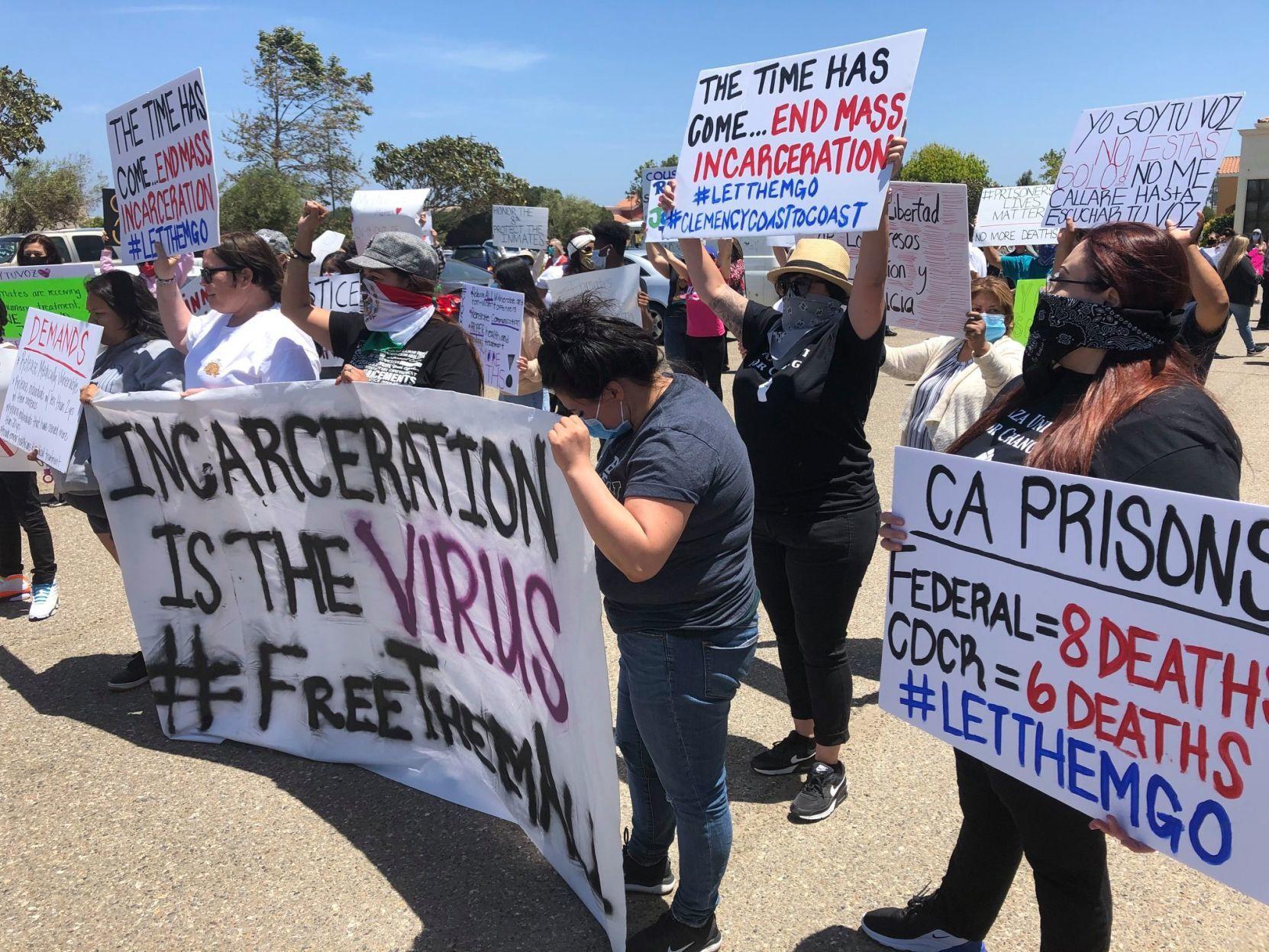Inmates Cry for Help, The Sad Reality of Health in Prison
 |
| An American prison cell in Georgia, VICE. |
Inmates Cry for Help, The Sad Reality of Health In Prison
Four walls and a bed are all you get for the next few years. You are forced into living in close contact with thousands of people from many different regions. You have minimal contact with the outside world, including your family and friends for making a mistake. You are treated horrifically by the officers and are subjected to abuse every day.
 |
| Protest for Lompac Prisoners, Lompac Record |
This is the harsh reality of living in prison. Prison overcrowding is a growing issue in the United States that gets easily overlooked. With the enormous amount of people placed in a single prison cell, it is impossible to get personal space. With the close proximity of the inmates, it is obvious that illness spreads quickly.
Illness, however, is not the only health issue that is infecting the inmates. Mental health problems within prison is skyrocketing and almost always gets left untreated. Prison gravely affects incarcerated individuals' physical and mental well-being.
In the last two years, COVID-19 has been a major health crisis globally. Everyone was told to stay at home, wear a mask, and stay six feet away from others. In a prison with four inmates in each cell, this is not possible.
The article COVID-19- The Case for Rethinking Health Care states that in September 2020 155, 000 prisoners tested positive and more than 1,000 died. The rates of prisoners testing positive were sufficiently higher than US residents. Many of the other COVID-19 cases and deaths went unreported due to the lack of medical supplies.
Every day inmates were scared for their lives that they would get COVID-19 and become deathly ill. There is nothing that the inmates could do to protect themselves and there are no policies set in place to help them. This is not just an issue with the inmates but is also posing a risk for the Correction Officers working within the prison system.
 |
| California Prison beds full of inmates with health conditions, The Marshall Project |
An article called Mental Health, Perceived Consensus of Coparenting, and Physical Health Health Among Incarcerated Fathers and Their nonincarcerated, Romantic Partners, states incarcerated individuals have higher odds of having hypertension, diabetes, heart problems, asthma,
arthritis, kidney problems, stroke, hepatitis, and STIs.
Inmates have high stress, poor nutrition, and low physical activity. These are factors that may cause inmates to have a higher probability of becoming ill. Inmates also have limited access to health care. This means if inmates get ill they cannot get the help they need and may die.
Another big issue in prisons is mental health problems. Inmates are isolated from the real world. Being torn away from family and friends is hard on any individual, no matter the circumstance.
The author of Gender Differences and Program Participation Among Prisoners with Co-Occurring Substance Abuse and Mental Health Disorders, states
"Not only does using solitary confinement not help prisoners with mental illness, it can serve to exacerbate existing conditions including depression, suicide ideation, self-harm, and psychosis."
 |
| Prisoner in solitary confinement, Frontline |
It doesn't matter what crime has been committed to having received a prison sentence, no one deserves to live with mental health issues. Inmates are still human, and it is unfair to them to be struggling in prison. Prison is supposed to be an opportunity for inmates to turn their lives around, not a place to torment individuals.
Sometimes inmates can no longer take the burden of their situation. In these circumstances, inmates commit suicide. People are struggling so bad in prison they decide to take their lives.
In a story by The Marshall Project, an inmate Dana took her life. Dana was a 22-year-old female incarcerated for a non-violent crime. In two months, she tried to kill herself four times and succeeded on the fifth attempt. This is just one out of hundreds of stories where an inmate is in desperate need of help, does not receive it, and ends up dead.
 |
| The makeshift noose in a prison cell, The New York Times |
Some people may argue that inmates don't deserve good health care. This is because they committed a crime and are just getting what they deserve. This is far from the truth. Prisons are supposed to be a place for treatment and change, not places of abuse and mistreatment.
In the article Decarcerating America: From Mass Punishment to Public Health, the authors say,
"The criminal justice system itself should have access to supportive tools rather than punitive ones."
Criminal justice systems need to have supportive tools to help the incarcerated from reoffending. If prison systems offered the health care needed crime rates would be lower because criminals would be able to get the help they need to turn their life around.
Inmates are real people who have made a mistake. Due to the harsh reality of the prison system today, inmates are treated in inhumane ways that no person should ever have to be put through.
| Overcrowding in California Prison, Insider |
Incarcerated individuals are put at a high risk of catching an illness, a higher risk of developing a disease, and are likely to struggle with mental illness. A large factor in this is that prisons are highly overcrowded and making it so prisoners can't get the help they need.
Would you want yourself, your family, or your friends to be put through this? Would you want yourself, your family, or your friends to die because of a lack of medical resources within the prison? Every day this is happening to someone's relative or friend. It is time to stand up and fight for equal rights for everyone, including the incarcerated.
Comments
Post a Comment